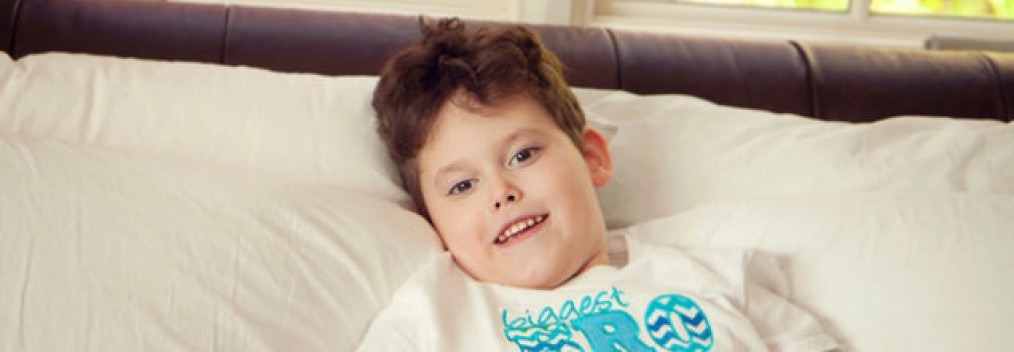
7-year-old boy with rare disease among those who may gain from newly-signed ‘Right to Try’ law
Originally published in FOX 13 Salt Lake City by Robert Boyd
SALT LAKE CITY — A new Utah law signed by Gov. Gary Herbert Wednesday could extend or even save the lives of terminally ill patients, and the new “Right to Try” legislation lets patients seek treatments that haven’t been fully approved by the federal government yet.
Cristina Might’s 7-year-old son Bertrand is among those who may benefit from the bill, as he was the first person to be diagnosed with a rare genetic disease called NGLY 1.
“We currently have nothing,” Might said. “No cures. No treatments for this condition, and we are on the clock to save his life.”
For two years, the Might family has been trying to get access to an experimental drug that could lead to a possible cure. However, many families–just like the Mights–may have to wait more than a decade for certain drugs to be approved by the FDA.
“We currently know there is a drug out there that works very well with his cells,” Might said.
With the signing of the “Right to Try” bill, patients will now have access to potentially life-saving drugs that haven’t yet been fully approved–as long as the FDA considers them safe for human testing.
It certainly put a smile on Bertrand’s face. He sat alongside Governor Herbert as the executive inked his name on the bill during a ceremonial signing Wednesday.
“Thanks for helping out buddy, you got legislation passed,” Herbert told the boy.
The bill also protects medical providers from liability for prescribing these experimental drugs.
Under the bill, insurance companies are not required to pay for the experimental treatment, so Johnson, the Chairman of Overstock.com, has created the non-profit Right to Try Foundation.
“Our Right to Try Foundation is raising money to help cover the costs of the experimental drugs for Utah families that can’t afford the medication,” Johnson said.
Stan Summers’ son is also terminally ill, and he said this new bill gives their whole family a new sense of hope.
“We’re not sure if there are any drugs out there right now, but we would like to think if there were drugs out there that would help him that we would have access to those drugs that would eventually help him to take care of his disease,” Summers said.